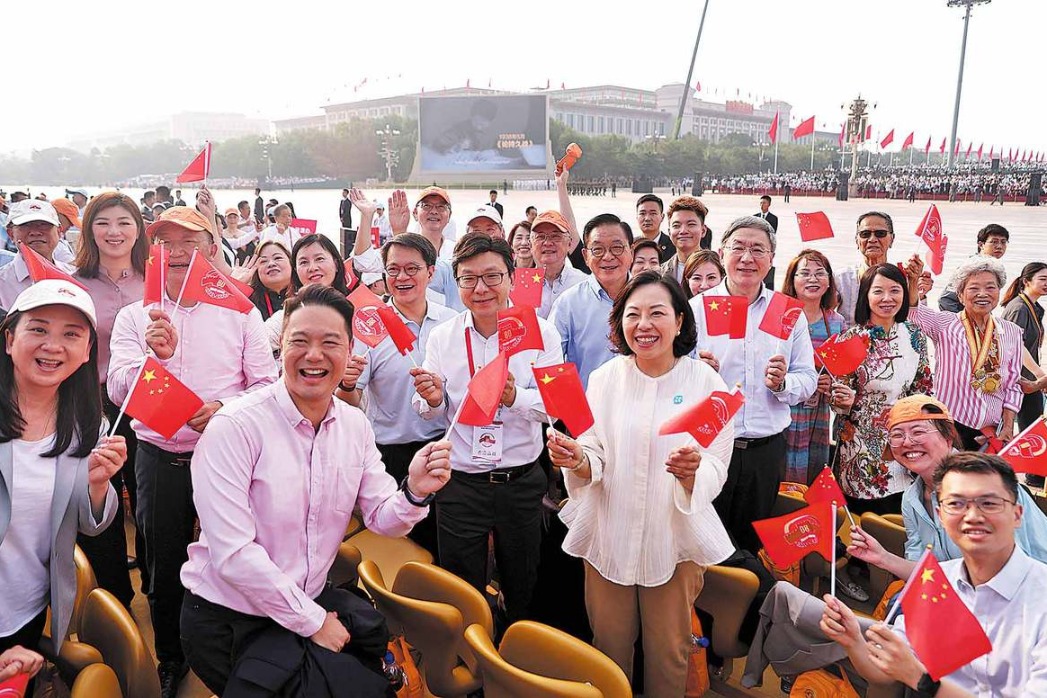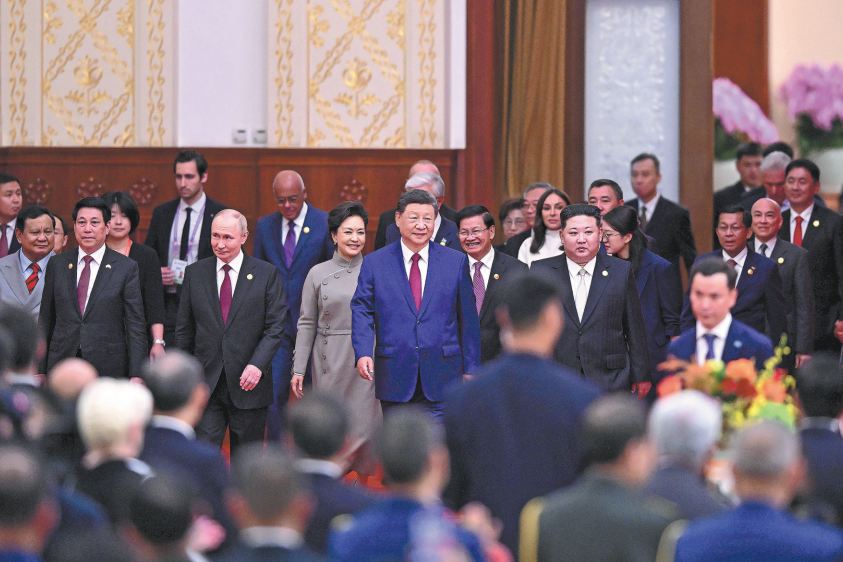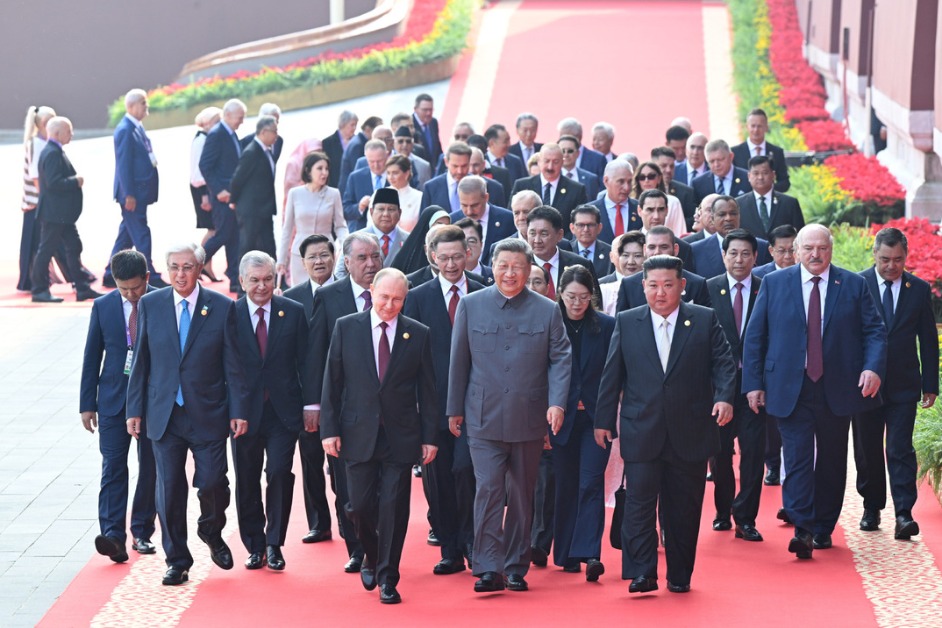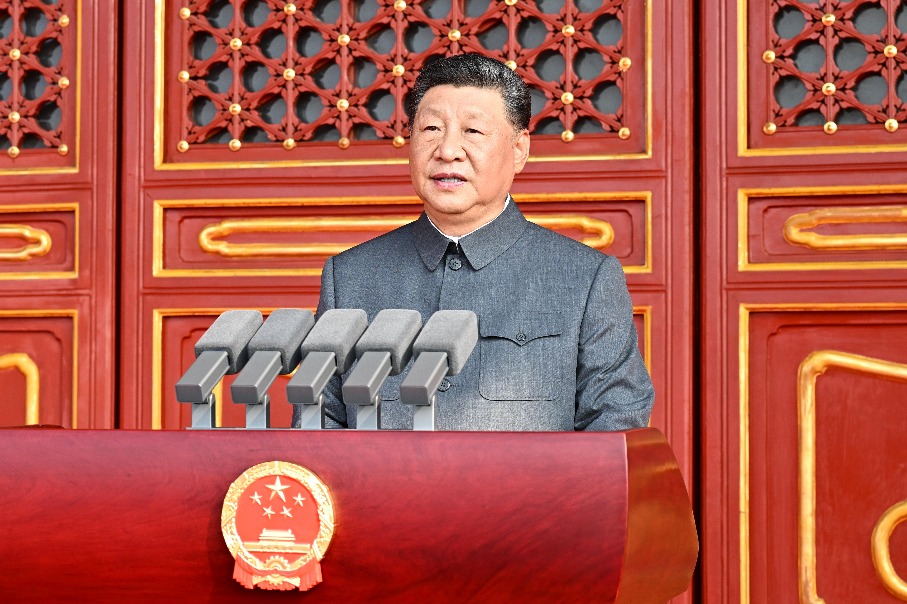Investing from China to benefit the world
Programs like QDLP, wealth products showcase merits of win-win approach

A little recognized and probably unappreciated fact about China's remarkable reform and opening-up policy of the last 40-odd years, piloted ably by the Communist Party of China (CPC), is there is more to it than attracting foreign investments and technologies to stoke development in China, investors, economists and researchers said.
Reform and opening-up, including that in the financial services industry, are also about China growing in a spirit of win-win, to benefit the rest of the world as much as itself.
Perhaps no recent policy move illustrates this point more tellingly than the one that helped introduce pilots of the Qualified Domestic Limited Partner, or QDLP, program, market mavens said.
"Backed by our expertise in overseas alternative investments, developing the QDLP business line has played a critical role in our journey of expanding presence in China," said Patrick Liu, head of China operations at Neuberger Berman, a New York-headquartered global asset management company (AMC) that had $429 billion worth of assets under management as of March 31.Its fundraising scale in alternative investments ranked sixth globally over the past five years.
Through QDLP, the CPC-led China has found a way of infusing life-sustaining capital, gathered from Chinese people, particularly high net worth individuals (HNWIs), into the world's financial markets, thus helping shore up the incipient recovery of the global economy from the ill-effects of the COVID-19 pandemic, they said.
In a sense, that is not a magical overnight turnaround but a well-thought-out, imaginative strategy-QDLP was introduced in Shanghai in 2013-to funnel Chinese HNWIs' rising disposable incomes into productive channels worldwide, even into some alternative investment avenues like private equity and hedge funds.
Addressing the CPC and World Political Parties Summit via video link in Beijing on Tuesday, Xi Jinping, general secretary of the CPC Central Committee and Chinese president, said the CPC stands ready to strengthen communication with the world's political parties to guide economic globalization to become more open, inclusive, mutually beneficial and balanced toward greater win-win results.
A shining example of that resolve, QDLP programs allow participation of foreign asset managers as well as domestic ones in some pilots. The asset management companies raise money from mainland investors toward privately offered funds that invest overseas within an approved quota.
The QDLP programs have grown in popularity since 2013. A few local governments such as those in Beijing, Tianjin and Qingdao, Shandong province, have embraced them with gusto.
Unlike other outbound investment schemes that mainly allow investment in listed securities and funds, the QDLP programs also provide access to overseas private equity and bonds as well as other types of alternative investments like hedge funds and bad credit assets.
The access that foreign asset managers gain to HNWIs in China via QDLP provides a valuable opportunity for the former to test the waters in the Chinese market and consider business expansion in China, experts said.
For instance, since receiving its QDLP license in 2018, Neuberger Berman has successfully applied for new quotas three times. At the beginning of the year, it received the latest green signal to raise $100 million. About two-fifths of it has been invested already, suggesting the asset manager is sanguine about its prospects in China.
Through its two previous successful applications, Neuberger Berman raised and invested $80 million via four QDLP products, which also helped it gather invaluable management experience in China-related investment strategy, compliance and risk control, and anti-money laundering.
Like Neuberger Berman, about 50 global AMCs have received QDLP licenses in Shanghai as of last year. These include prominent names such as BlackRock, Man Group and UBS, according to the Shanghai Municipal Financial Regulatory Bureau.
Although QDLP tends to attract HNWIs due to high investment thresholds, various other wealth management products of AMCs are seeking to meet the growing demand of newly affluent Chinese households for opportunities to contribute to global prosperity via overseas investments, experts said.
"Public awareness of wealth management and demand for asset allocation have become increasingly stronger. Overseas markets have become a key investment destination for Chinese residents, especially entrepreneurs and HNWIs," said Austin Luo, head of private wealth management at Haitong International Securities Group Ltd.
"In a global market landscape featuring intensified volatility, alternative strategies that invest in mature overseas markets can provide domestic investors with more diversified investment options, helping them diversify risks and reduce volatility," UBS Asset Management, one of the world's largest alternative investment managers, said in an emailed interview.
The company said it will introduce its second hedge fund under the QDLP program in the second half of the year, which will raise funds in China and invest in overseas markets.
This move came after the Swiss asset management giant's first overseas hedge fund under the QDLP program found favor among domestic HNWIs since its launch in 2016.
In 2015, the company received the QDLP license with a quota of $100 million via its wholly owned venture in Shanghai.
UBS Asset Management said it will further leverage the QDLP program to offer Chinese investors more distinctive investment products, including sustainability-focused funds, overseas alternative funds and hedge funds.
Experts said China's expedited steps in financial opening-up may further fuel the trend of AMCs launching more QDLP products.
Pan Gongsheng, deputy governor of the People's Bank of China, the central bank, said at the 13th Lujiazui Forum in June that the country will expand the QDLP pilot programs, supporting Shanghai's bid to emerge a major market in the world for wealth and asset management.
Measures will be taken to advance reform of cross-border investments by private equity funds to support their cross-border industrial investment, said Pan, who is also head of the State Administration of Foreign Exchange, the country's foreign exchange regulator.
Some progress in this direction has been made already. The SAFE approved the rollout of new QDLP pilot programs in Jiangsu and Guangdong provinces with quotas of $5 billion each this year. In November, it announced the rollout of QDLP in the Hainan Free Trade Port and Chongqing municipality.
Since late last year, the administration also doubled the QDLP quota to $10 billion for each of the QDLP programs in Shanghai and Beijing, as well as a similar outbound investment pilot program in Shenzhen, Guangdong province, called the Qualified Domestic Investment Enterprise, or QDIE, program.
The SAFE has so far approved at least $43 billion QDLP quotas nationwide, plus $10 billion toward quotas for Shenzhen's QDIE, according to data compiled by DeHeng Law Offices.
Last year, removal of foreign ownership caps in financial sectors of securities, mutual funds, futures and life insurance encouraged foreign players to expand their business in China.
In June alone, BlackRock Fund Management Co Ltd, the first wholly foreign owned mutual fund business in China, as well as Japan-based Daiwa Securities Group and Singapore-based DBS Group's majority-owned securities firms in China have all received licenses to commence business.
Financial opening-up will deepen in the years to come, as shown by the 14th Five-Year Plan (2021-25), the country's development blueprint for the next five years.
China will steadily and properly advance the opening up of banking, securities, insurance, fund, futures and other financial sectors, deepen the connectivity of domestic and overseas capital markets, and improve the system of qualified foreign investors, according to the plan.
The continuous efforts to open China's financial border wider have demonstrated how China is seeking to connect closer with the rest of the world for mutual interest under the dual-circulation development paradigm, in which domestic circulation is the mainstay and domestic and foreign markets support each other, experts said.
In the sector of alternative investment, for instance, the expansion in QDLP programs will bring business opportunities to foreign institutions, diversify investment targets for domestic investors, and help promote high-quality development of China's investment industry, they said.
UBS Asset Management summed it up nicely: "The QDLP programs have ushered investment strategies popular across mature overseas markets into China. These include alternative strategies and ESG-themed investments, which take environmental, social and governance standards as key criteria when screening potential investments.
"This process has helped enrich the product set in China's asset management industry, set examples for domestic industry players, and promote the internationalization of the country's capital market."
Shi Jing contributed to this story.































